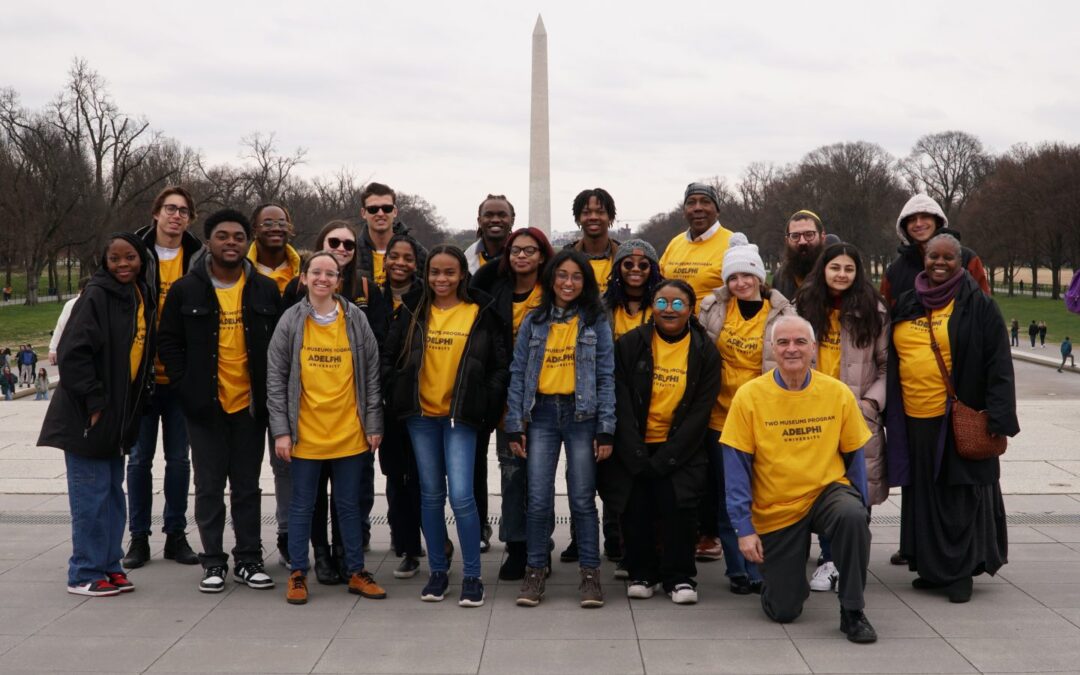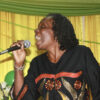This essay of mine appeared in “For a Righteous Cause: Annual Report 2024,” published in January 2024 by Tel Aviv University’s Center for the Study of Contemporary European Jewry.
Last year, as the rapper Ye (formerly known as Kanye West) was having a very public antisemitic meltdown, some on the political right asserted that his antics were not simply the rantings of a self-described bipolar person but rather a manifestation of a larger and more troubling problem: Black antisemitism*. A concurrent scandal involving Kyrie Irving, a Black professional basketball player who promoted an antisemitic documentary on social media, along with several violent attacks on visibly Jewish New Yorkers — some of which were committed by Black perpetrators — fed the perception that the African American community was simmering with rage against Jews.
The three-month period when these incidents were unfolding, October to December 2022, marked a nadir in Black-Jewish relations, and possibly the lowest point since the Crown Heights riot in 1991. Yet in the year that has passed since then, some heartening progress has been made to repair the historical Black-Jewish alliance.
The most significant development was the July relaunch of the Congressional Caucus on Black-Jewish Relations, with the backing of the American Jewish Committee, Anti-Defamation League (ADL) and National Urban League. The purpose of the Caucus, which originally launched in 2019, is “to ensure open dialogue and partnership between the two communities.” In the past, the Caucus has supported legislation to combat all forms of racism, convened a roundtable of Black and Jewish organizations, and joined social media campaigns in support of American Jews.
Two Museums Program and Other Projects
In the realm of academia, there have been some creative efforts to address antisemitism on college campuses during the past year. David Machlis, an economics professor at Adelphi University in Long Island, NY, organized a trip for 18 Black and Jewish students to visit both the U.S. Holocaust Memorial Museum and the Smithsonian National Museum of African American History and Culture in Washington, D.C. Machlis said the purpose of the March trip was “to motivate students to all use their platform and stand up to combat racism, intolerance and antisemitism together.” He noted that “antisemitism is not just a Jewish issue, nor should combating racism be just a Black issue.” Adelphia received a Higher Education Excellence in Diversity award in recognition of the Two Museums Program (TMP) and other diversity, equity, and inclusion efforts.
Machlis solicited feedback from the students and staff who participated in the program. One Black student wrote that it “helped me truly witness and understand the destruction that ignorance can bring to a group of people. If there’s one thing I took away from TMP, it’s to be proactive rather than reactive.” A Jewish student wrote: “Receiving a greater understanding of how these groups were and still are oppressed and hated drives me to want to do more in the fight against hatred, oppression, antisemitism, and racism.” A Black member of the Adelphi staff who went on the trip wrote: “It reminds me that we are only one evil thought away from having these same acts of violence committed on mankind, and we must be hypervigilant about hate speech and hate acts of violence.”
Machlis said he plans to take another group of students to the museums in the fall of 2024. In the meantime, he is raising money to expand the program to other universities within driving distance of the two museums and to record related video content that can be distributed online.
At Xavier University of Louisiana, a historically Black Catholic university, a group of students created a series of videos to educate students at Historically Black Colleges and Universities (HBCUs) about the history of Black-Jewish allyship. In the videos, the students ask their peers trivia questions such as “Which HBCU did Albert Einstein guest lecture at?” and “What was the name of the Jewish civil rights activist who helped found the NAACP?”
Jamaya Davis, a co-creator of the Still We R.O.S.E. project, said the goal was to “break down barriers…and reach across the aisle with open hearts and minds.” The Department of Homeland Security awarded it first place in its Invent2Prevent competition, which encourages students to develop projects to prevent violence and terrorism in their communities.
Beyond university campuses, there have been many public lectures and conversations involving Jews, non-Jewish Black people and Black Jews in cities across the United States. In the Bay Area of California, for example, a group of artists and activists held a series of panel discussions at local high schools about the history of Black-Jewish relations and the points of tension between the communities.
In December 2022, ADL CEO Jonathan Greenblatt announced that the organization would hold “community conversations” to build bridges between African Americans and Jews. “I think so often our communities don’t interact, don’t engage, don’t hear one another,” he said on “The Breakfast Club,” a popular morning show on a hip-hop radio station in New York. A spokesperson said ADL had begun planning those conversations with input from the family of Martin Luther King, Jr., National Action Network and other partners. However, the spokesperson said the outbreak of the Israel-Hamas war in October forced ADL to postpone further planning until a later date.
Black Jews on Social Media
Online, a small group of content creators who are both Black and Jewish have been pushing back against antisemitic stereotypes, Holocaust denialism and criticism of Israel in videos they post on Instagram and TikTok. They include Tova Ricardo, Raven Schwam-Curtis, Shekhiynah Larks, and others. By sharing their stories and knowledge, these creators are allowing social media users to see the diversity and complexity of the American Jewish community.
Ricardo, for example, expresses her pride in being both Black and Jewish on Instagram, where she has more than 13,000 followers. She also posts calls to action. “You don’t need to be Black to stand up for Black lives,” she wrote on May 9, 2022. “You don’t need to be Jewish to stand up for Jewish lives. Hating Black folks won’t end antisemitism. Hating Jewish people won’t end anti-Black racism.”
Schwam-Curtis, who has over 100,000 followers on TikTok, has created videos on an array of topics, including her identity as a Black Jew, Jewish communities around the world, Jewish traditions, and race and whiteness. One of her most popular videos, which was viewed 1.5 million times, is titled “Unpacking Black and Jewish Stereotypes.” Her content caught the attention of the White House, which invited her to interview Doug Emhoff, the Jewish husband of Vice President Kamala Harris, about his efforts to combat antisemitism.
Many of the videos that Larks posts for her 35,000 followers on TikTok deal with race and white supremacy in the U.S. In an October 2022 video, she argues that the idea that Black people are “the original Jews” — an idea promoted by Ye and radical Hebrew Israelites — is an antisemitic lie. “Have there always been Black Jews? Yes,” she says in the video, which was viewed 222,000 times and received 1,500 comments. “Is every Black person Jewish? No. Was there ever a point where every single Black person was Jewish? No.”
She has also posted videos addressing misconceptions about the Holocaust, such as that it was an instance of “white on white” violence. In 2021, Larks called out a popular Black TikTok creator who “liked” an antisemitic video about Anne Frank. She encouraged him to do teshuvah (atonement), and in response he vowed to do better.
In the midst of the controversies surrounding Ye and Irving, Morton Klein, the controversial president of the Zionist Organization of America, wrote on Twitter: “Why are almost all physical attacks against Jews committed by Blacks. Why are so many Blacks spewing Jew hatred? … Must find out why & how to stop it.”
Klein, it should be noted, has made a habit of singling out African American individuals and organizations for opprobrium for all manner of perceived transgressions against the Jewish people and the state of Israel. And his memory for such transgressions is, apparently, quite long. Among the African American entertainers and politicians he identified as “spewing Jew hatred” was the one-time presidential candidate Jesse Jackson, who came under fire nearly four decades ago for indelicate remarks that he swiftly apologized for.
Klein’s assertion that Black people commit “almost all physical attacks against Jews” is baseless. The FBI said last year that Jews face real threats “from all kinds of actors.” Yet Klein is not alone among older American Jews in believing that antisemitism is pervasive in the Black community today. Is it, really? And if so, what are its sources?
‘Blind Spot’ Regarding Jews
Since at least the 1960s, surveys have shown that African Americans hold antisemitic views at higher rates than members of other racial groups in the U.S. A 1964 survey by the Anti-Defamation League (ADL) — then known as the Anti-Defamation League of B’nai B’rith — found that 45% of African Americans were prejudiced against Jews. By 1992, the percentage of African Americans who ranked the “most anti-Semitic” in their views, according to the ADL, stood at 37% — though that was still more than twice the percentage of white people (17%) who earned the same ignominious designation. Notably, these percentages declined as the level of the respondents’ education increased.
More recently, a 2016 ADL survey found that 23% of African Americans showed “antisemitic propensities,” compared to 14% of the general population, and that these percentages had been consistent since 2007.
Any reasonable person would say the data reveal a real and troubling phenomenon. In a New York Times column last year, the Black, non-Jewish scholar Michael Eric Dyson wrote, “Black antisemitism is real; so is Jewish racism.” Another Black, non-Jewish commentator, Mike Freeman, argued in USA Today that “there is a significant strain of antisemitism among Black Americans” and that Black people have a “blind spot” when it comes to Jews.
Black Jews, who as members of both Black and Jewish communities have more skin in the game, tend to frame the issue differently. “There needs to be a moratorium on the phrase ‘Black antisemitism.’ It’s the same antisemitism,’” Yitz Jordan, the Black Jewish rapper who goes by Y-Love, told me in a recent interview. He said Black people are just as susceptible as non-Black people to picking up and spreading antisemitic stereotypes and conspiracy theories.
Kendell Pinkney, a Black rabbi, echoed that sentiment in a 2022 essay. “Despite the number of books on such topics,” he wrote in the Jewish Telegraphic Agency, “Black antisemitism is not a thing, just like Jewish anti-Blackness is not a thing. Rather, antisemitism and anti-Blackness are long-standing structures of social prejudice that all peoples and societies fall prey to.” (Indeed, the ADL has found that about a quarter of the world’s adult population harbors antisemitic attitudes.)
The sources of Black resentment toward American Jews have changed over time, but it is generally understood that the fundamental tension is over Jews’ success at becoming “white,” meaning they achieved levels of social acceptance and economic and political power that Black people and other people of color have been unable to achieve due to the forces of white supremacy. As James Baldwin wrote in an oft-cited 1967 essay: “The Jew profits from his status in America, and he must expect Negroes to distrust him for it. The Jew does not realize that the credential he offers, the fact that he has been despised and slaughtered, does not increase the Negro’s understanding. It increases the Negro’s rage.”
Baldwin described other resentments, including economic ones (he wrote that many landlords and shopkeepers in Black neighborhoods of New York were unscrupulous Jews) and philosophical ones (he asserted that Jews could not fully understand how “desperate” the plight of African Americans was at that time). During the civil rights movement, Jews and Black people famously collaborated to achieve racial justice gains. Then, during the Black Power movement of the 1960s and ’70s, Black activists pushed Jews and other white liberals out of civil rights organizations in the name of Black self-determination.
Meanwhile, certain racialized forms of antisemitism emerged from new religious movements that are exclusively or predominantly Black. They include the Nation of Islam, whose leader, Louis Farrakhan, rails against “the Satanic Jew” in speeches, and the extremist Hebrew Israelite sects that blame (white) Jews for stealing their identity from them. (A small percentage of the African American population belong to these movements.)
Today, one of the major wedge issues is the Israeli-Palestinian conflict. Many Black people sympathize with the Palestinians, whom they see as an oppressed people of color fighting against European colonizers. Black opposition to Israel goes back to at least 1967, when, following Israel’s victory in the Six-Day War, the Student Nonviolent Coordinating Committee published an article in its newsletter calling Israel an “illegal state” and accusing it of mistreating both Arabs and dark-skinned Jews. In 2016, the Movement for Black Lives, which represented more than 50 Black organizations, published a platform in which it described Israel as an “apartheid state” that was carrying out a “genocide” of the Palestinians. Israel was the only foreign country that the Movement for Black Lives mentioned in the foreign policy section of its platform.
For their part, Jews have felt betrayed when Black leaders failed to quickly and forcefully denounce antisemitic speech or violence by members of their communities.
Policy Recommendations
1. Empower Black Jews to lead educational and other outreach efforts in Black communities. Black Jews and other Jews of color typically enjoy greater credibility in Black spaces, yet the number of Black Jews in leadership positions at major American Jewish organizations remains low. In 2020, a study found that only two of the 51 member groups in the Conference of Presidents of Major American Jewish Organizations had a Black Jew on their board of directors. These organizations must make concerted efforts to recruit and retain Black Jewish leaders.
2. Amplify the voices of Black Jewish content creators on social media. In many cases, these creators can communicate more effectively with non-white users than white Jewish creators. And the audience for their messages on social media platforms such as Instagram and TikTok is huge and skews young, meaning they have the ability to shape perspectives on issues concerning Jews, Judaism and the Israeli-Palestinian conflict.
3. Efforts to combat antisemitism in the Black community must accompany efforts to combat anti-Black racism in the Jewish community. Jews cannot expect Black people to change their antisemitic attitudes if Jews are not willing to change their own racist attitudes toward Black people and other minority groups.
* “Black antisemitism,” though widely used in the popular press, is a fraught term, as it suggests (wrongly, I believe) that antisemitism emanating from the African American community is somehow different, and possibly more sinister, than antisemitism emanating from other racial, ethnic or religious groups. No serious person describes the actions of, for example, the white nationalists who marched in Charlottesville, Virginia in 2018 chanting “Jews will not replace us” as “white antisemitism” or the violent acts of Hamas terrorists as “Muslim antisemitism.” I use it here simply as shorthand for the antisemitic beliefs that some, but not all, Black people hold.




